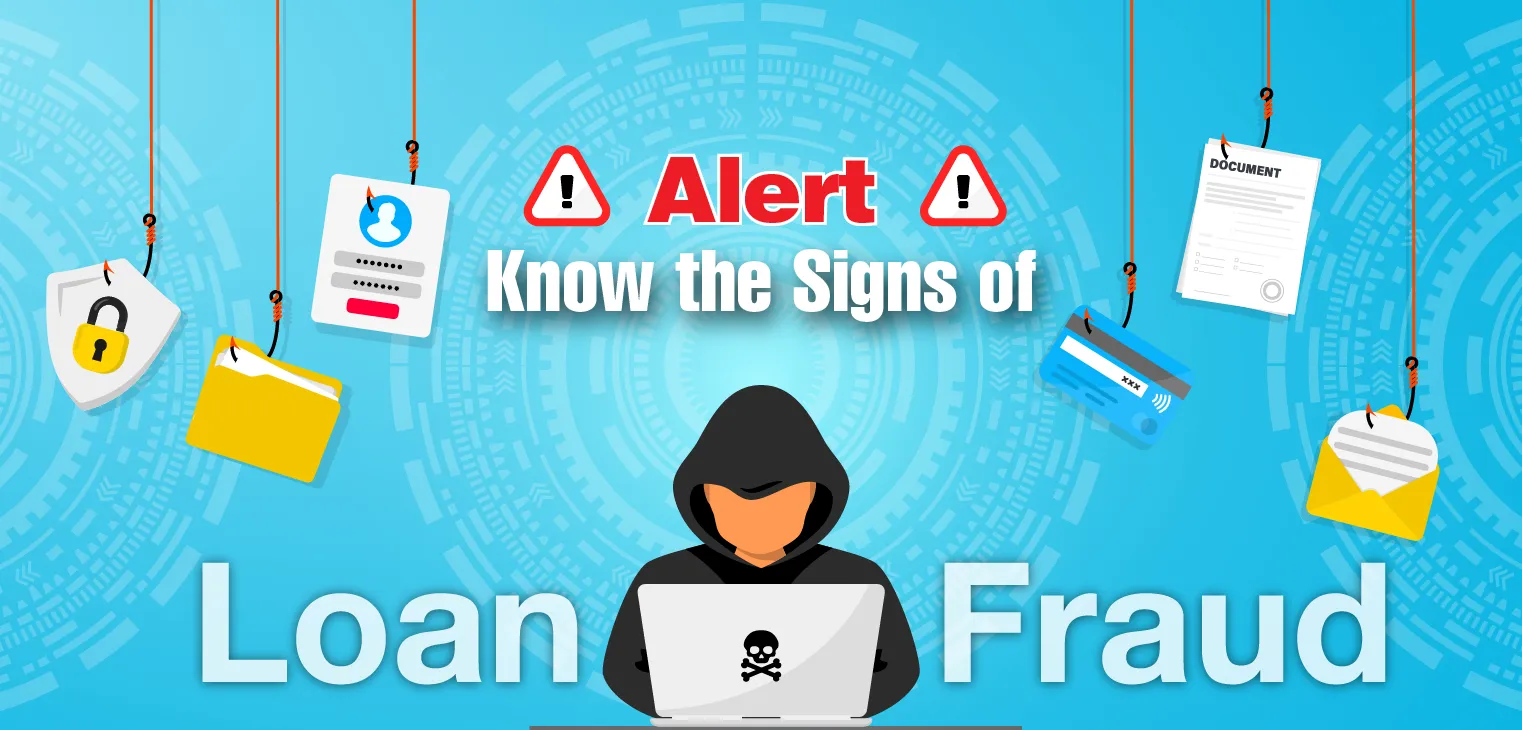Cookies Consent This website uses cookies and other tracking technologies to improve your browsing experience for the following purposes to enable basic functionality of the website, to provide a better experience on the website, to measure your interest in our products and services and to personalize marketing interactions
- Blog

In India, where financial aspirations are constantly rising, loans have become vital tools that enable individuals and businesses to achieve their dreams. From buying a home to purchasing a car and upgrading your home appliances, loans offer the necessary financial support to turn aspirations into reality. However, as the demand for loans increases, so does the threat of loan fraud. Many unsuspecting individuals are now at risk of falling prey to scammers and losing their hard-earned money. Let’s better understand these scams and how to stay safe.
What Are Loan Scams?
Loan scams are deceptive practices where fraudsters offer false or misleading loan services to trick individuals into providing personal information or money. Scammers often present themselves as legitimate lenders or financial advisors, promising quick and easy access to funds. These scams could offer personal, business, and even student loans.
How Are People Scamming Those Applying for Loans?
Loan fraudsters employ a range of tactics to dupe their victims.
Advance Fee Scams
Scammers ask for an upfront fee before disbursing the loan. They often claim the fee goes towards taxes, insurance, or processing. The fraudster disappears once you pay the amount, and the loan never materialises.
Phishing Scams
Here, scammers pretend to represent legitimate financial institutions or loan providers. They ask for sensitive personal information, such as bank account details, PAN card numbers, and Aadhaar numbers. They use this information to steal your identity and commit other fraudulent activities.
Fake Loan Offers
Some fraudsters advertise loans with low interest rates, flexible repayment terms, instant approvals, and minimal documentation. Many even create professional-looking websites to look like a legitimate business. Once individuals apply for a loan, the scammers steal their personal information for various illegal activities.
How to Identify a Loan Scam
Offers That Are Too Good to Be True
Loan offers that promise no credit checks, instant cash disbursals, and exceptionally low interest rates are likely scams. Remember, all legitimate lenders will check your creditworthiness, and none of them will guarantee approval.
Upfront Fees
Legitimate lenders never ask for any fees before processing the loan. Be wary of lenders that request payment for processing fees and administrative charges in advance.
Pressure Tactics
Scammers often create a sense of urgency to pressure you into making quick decisions. Never consider lenders who push you into completing paperwork immediately.
Unsecure Communication Channels
Authentic financial institutes use secure communication channels such as official e-mails or messages from verified WhatsApp accounts. Do not engage with lenders who contact you directly via personal e-mail accounts.
Authentic financial institutes use secure communication channels such as official e-mails or messages from verified WhatsApp accounts. Do not engage with lenders who contact you directly via personal e-mail accounts.
Legitimate lenders must have a physical office location. If the lender cannot provide a verifiable business address, be careful.
How to Report Scammers and Stay Protected
Whenever you suspect fraudulent activity or encounter a loan scam, you must report it to the authorities and protect yourself and your finances.
Report to the Authorities
Contact your local police station and file a First Information Report (FIR). You must also approach the Reserve Bank of India (RBI) and the Securities and Exchange Board of India (SEBI) to report the scam.
Notify Your Bank
Inform your bank immediately if you accidentally share personal or financial information with the scammer. Your bank will help secure your funds and prevent further fraud.
Maintain Clear Records
Keep records of all communications with the scammer. Screenshots and saved e-mails can help authorities during their investigation.
Educate Yourself and Others
Stay informed about common loan scams, and warn your family and friends about the same. Regularly check for new warnings and information issued by trusted financial institutions and regulatory bodies.
Use Secure Channels
Always use secure and verified communication channels when dealing with financial matters. Avoid sharing sensitive information over unsecured and public networks.
Learning to identify loan scams helps keep you safe. Ensure you use only official channels to apply for loans and deal with trusted lenders like HDB. We offer various loans to help you fulfil multiple aspirations. Visit the HDB website today to apply for a loan via an official channel and stay safe from scams.




























































